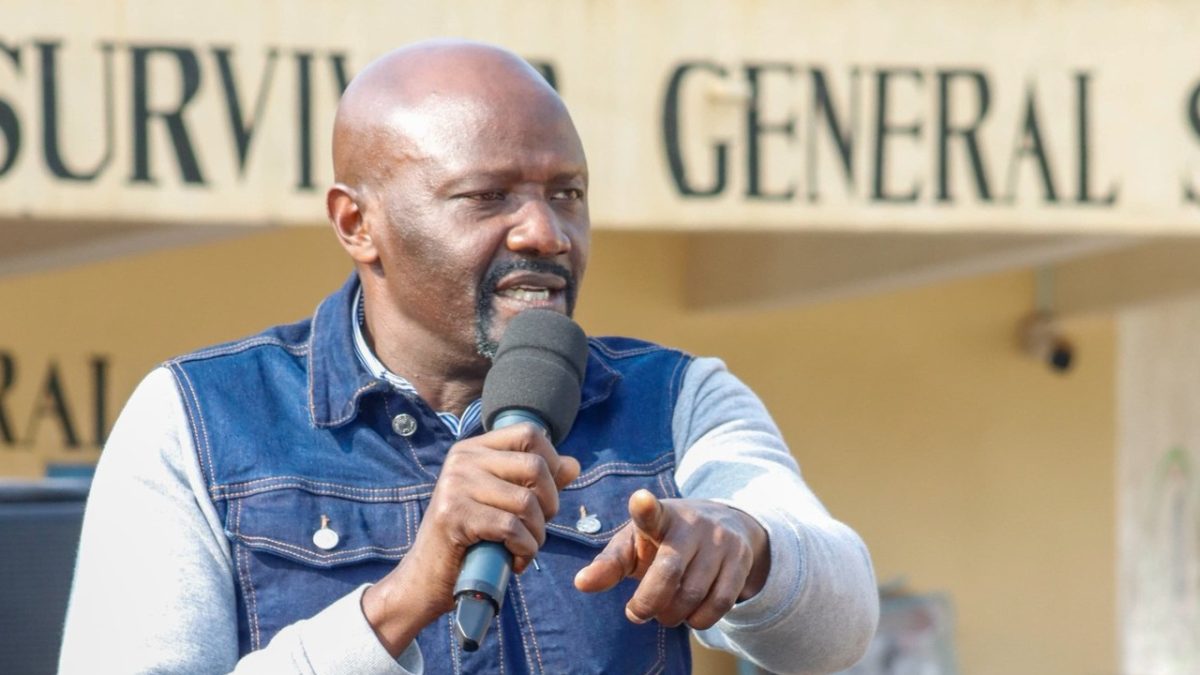- Details
- East Africa
- 356
Murang’a County Senatior Joe Nyutu speaking during a past function. PHOTO/https://www.facebook.com/profile.php?id=100083037947221
Murang’a County Senator Joe Nyutu has slammed President William Ruto over the house levy imposed on Kenyans, especially salaried employees, in funding the Affordable Housing project.
Speaking during an interview with a local media outlet on Monday, October 6, 2025, the legislator criticised the levy, noting that it had inflicted greater financial strain on salaried workers.
Also Watch: Nyutu says Ruto has brought down education sector, yet brags as most learned president
“There is a problem with the affordable housing this program has raided Kenyans, especially pay slip holders, through the housing levy,” Nyutu said.
He further went on to dismiss Ruto’s past remarks while marketing the Affordable Housing program, where Nyutu accused Ruto of failing to fully disclose to Kenyans that the Affordable Housing would be brought out by a levy.
‘President William Ruto did not market affordable housing as one that was going to be brought about by a levy. At one time, he said that this particular idea was very progressive and good and that if you did not want to get a house after about five years, then you would be able to recap your savings,” Nyutu added.
Uhuru, Ruto house levy conversation
President William Ruto has disclosed that former President Uhuru Kenyatta personally called him to ensure Kenya’s housing programme stayed on track, warning him about the housing levy.
Speaking at a teachers’ meeting in the State House on Saturday, September 13, 2025, Ruto recounted the moment Uhuru called him to discuss the housing programme and ensure the levy was implemented correctly.
“One morning, Uhuru called me, ‘William, come here…’ He told me, ‘Hey, do you have a house?’ I said, ‘Yes, Mr President.’ So at night, we called him. What is this? If people want housing, let them go; let this thing be lost. Housing is over there. Do you understand me?” he said.
He went on to explain how Uhuru also guided him on selecting the Principal Secretary Charles Hinga to lead the housing projects.
“So when it came to Jubilee, my boss… Uhuru told me, ‘I have a very good person, a very good professional; he is in South Africa, and his name is Charles Hinga.’ We went to look for him. We brought him,” Ruto recalled.
Guidance from Uhuru
Ruto highlighted that housing has been a recurring priority in party manifestos over the last 30 years, from the first slum upgrading programmes under Azimio to the Jubilee manifesto’s big four agenda.
He noted that the current levy was part of a clear plan to make housing accessible and sustainable. By Cynthia Lodite, K24






